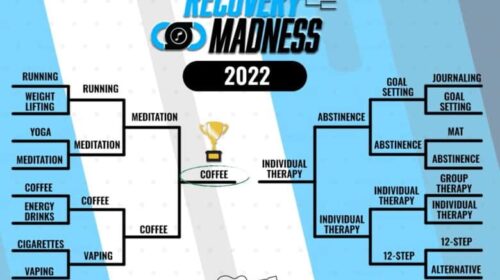So, you completed your treatment program, and it’s time to return to real life. How is your mental health? Are you excited? Nervous? Scared? Whatever you’re feeling, you’re not alone.
After you get home, it can feel like everything you learned in treatment went out the window. You may be impatiently waiting for that first significant stressor to come along and tear your world apart.
But wait! There’s so much more you can do to support your mental health after treatment; we’ll help you with that today.
Your treatment team doesn’t forget about you after you finish your program! They want you to succeed and will likely give you referrals or provide you with continued care if you need it.
Mental Health + Addiction Treatment
Addiction is a complex disease that can affect anyone regardless of background, appearance, location, or lifestyle.
People who struggle with addiction often have underlying mental health issues that require attention during and after treatment. Working on your mental health is necessary for a successful recovery and long-term sobriety.
Addiction impacts all aspects of a person’s life and is often intertwined with other mental health struggles.
Understanding Co-Occurring Disorders
In treatment, you worked on various factors of your addiction, including where your use originated, developing healthy coping strategies, and learning how to manage your triggers and mental health symptoms.
It’s common for people to experience addiction and mental health disorders together.
What is a co-occurring disorder?
When those with substance use disorder (SUD) also struggle with a mental health disorder, this is called a co-occurring disorder or a dual diagnosis.
Approximately 9.2 million adults in the United States have a co-occurring disorder, according to the Substance Abuse and Mental Health Services Administration (SAMHSA).
- Some examples of common disorders that occur alongside addiction are:
- Bipolar disorder
- Depression
- PTSD
- Anxiety disorders
- ADHD
- Personality disorders
- Schizophrenia
This is by no means an exhaustive list.
How to Support Your Mental Health in Recovery
Practice self-care
We’re not here to tell you that a bubble bath will fix all your problems, but if that’s your thing…go ahead!
Self-care is much more than the tips on your Instagram feed; it’s a necessary part of your recovery, and you can decide what works best for you.
In treatment, you practice maintaining a healthy lifestyle and learning coping strategies. After you leave and get settled in your day-to-day life, it’s on you. That’s where self-care comes in. Here are our tips:
Move your body
Notice that we didn’t say “exercise,” though that’s what we mean. Somedays, the hardest part is finding the motivation to get up and move your body. But you don’t have to jump into bodybuilding or start a strict cardio routine to become more active.
Go for a walk, join a gym, or swim laps at the community pool. You can also do at-home yoga if slow movement is more your jam.
Just like recovery, it’s great to have some accountability for exercising. Find a friend to start a gym routine or plan a weekly walk with. Having someone with you makes it easier and way more enjoyable, plus you get social interaction too!
If you like to be by yourself, that’s OK too! Listen to a podcast, audiobook, or our favorite: music!
Do more of what you enjoy
That’s right; we want you to HAVE MORE FUN! This might look slightly different now that you’re in recovery, but what’s cool is that you get to “start over” and find out what you like doing (that doesn’t involve drugs or alcohol).
This is your chance to try new hobbies, meet new people, and figure out how you like to spend your time. Look online for local community events or groups to join.
Prioritize sleep
Sleep is underestimated. No, you don’t need to finish “one more” episode of that new show on Netflix. It’s not 1990—you can watch it tomorrow, remember?
Create a bedtime routine, and try to stick to it. Some ideas: stretch, read a book, shower, practice breathing, or call a friend. Aim to hit the hay at the same time every night and try to get 7-8 hours of sleep regularly.
Eat healthy foods
Although reaching for your favorite comfort foods when you feel stressed can be tempting, try to eat a balanced diet. Aim to eat more vegetables, fruit, nuts, beans, and other whole foods.
A 2016 study found that those who ate more fruits and vegetables rated higher happiness levels. You are what you eat!
We’re not saying you must give up sweets or your favorite salty snacks, but be aware of what you eat and when. It’s easy to turn to food when you’re feeling down. And this can be a slippery slope.
Relax
Easier said than done, right? We get it. Relaxing can be challenging, especially with the unknown stressors that life throws at us.
What helps you to relax is personal. Some people prefer to journal or listen to soothing music, while others enjoy spending time with people they love.
No need to become a meditation pro. But consider taking as little as five minutes out of your day for a few deep breaths and re-center yourself. You’ll be surprised at how much better you feel!
Set boundaries
Boundaries are an essential and often overlooked part of your post-treatment self-care plan. You deserve the best; to get that, sometimes you must be firm with what you will tolerate.
Without boundaries, you exert unnecessary mental energy. And you need as much of that as possible!
In addition, boundary setting can improve your self-esteem and confidence and enhance your relationships. It’s also an great way to discover who you can and can’t depend on.
Ask for help
Don’t be afraid to ask for help when you need it.
We hope you have some friends and family to lean on when you need them. After leaving treatment, you likely have some professional support lined up too. Ideally, you want these supports in place before you need them.
Change your mindset
While in treatment, you might have learned a little about how your mindset can affect many other parts of your life.
Although you can’t help your thoughts, what you do next is up to you. This gets easier over time, and it can feel like making a new habit if you’re not used to it.
Strive to adopt a growth mindset. Be open to learning and growing throughout your life. Life is short, but it’s way more enjoyable if you figure out how to make the most of it.
Create a support system
While in treatment, you had support 24/7, whenever you needed it. But in real life, this might look different. You may have work to build a support system around you.
Trust us—it’s worth it.
Consider who you can rely on the most. Who can turn to when life gets hard? (spoiler: it will get hard) These people could be friends, family, coworkers, or people you’ve met online.
Do a quick search on Google, Facebook, or Instagram, and you’ll find entire communities of folks in recovery to connect with. Join a group, find meetings, or join a membership community. There are free and paid options available.
At Recovery Unplugged, we have an interconnected alumni community that supports and inspire each other daily. People in our national network do regular check-ins for accountability after treatment. We host in-person and online events and do weekly meetings on Zoom.
Recovery Unplugged Can Help
We have various mental health treatment options and use evidence-based programs to support your recovery after you leave treatment.
Mental health programs at Recovery Unplugged
Our Virtual Mental Health Treatment is more than just therapy online. Your primary therapist will be a Master’s level clinician. You can access our psychiatric services while in treatment, and our doctors will help you with medication management and prescribe medications if needed.
Thanks to technology, you can access mental health treatment from the comfort of your home. Some benefits include:
- Anonymous
- Convenient
- Flexible
- Affordable
- Supportive
The groups at Recovery Unplugged typically have ten to fifteen individuals but can be as large as twenty people per group.
Recovery Unplugged’s virtual mental health treatment program operates on a rolling curriculum. Each day has a different topic; some include anxiety, triggers, belonging, or transcendence.
As you end your treatment, your therapists will provide any referrals needed, including medical, therapeutic, or case management.
You’re not alone
Recovery Unplugged is committed to providing mental health treatment options that fit your needs. We take an individualized approach to care and are with you every step of the way, even after treatment.
Life isn’t perfect after you complete treatment. But you’re not alone, and support is a phone call away.
If you’re looking for more mental health support, whether you’re a Recovery Unplugged client or not, call today to talk to one of our professionals. We’re here for you any time of day or night: 1 (855) 975-1757.

























